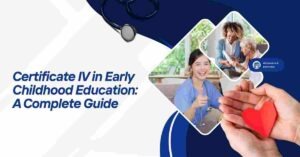Introduction
In the digital age, computer literacy is no longer optional—it’s essential. Whether you’re a complete beginner or someone looking to update your digital skills, free computer courses for adults in the UK offer valuable learning opportunities that can transform both career prospects and day-to-day life. These courses are designed to be accessible, flexible, and practical, enabling adults of all ages and backgrounds to develop the computer skills needed to thrive in a modern society.
In this article, we’ll explore the different types of free computer courses available, how to access them, what skills you can expect to learn, and the advantages of enrolling in these training programs as an adult in the UK.
Why Computer Skills Matter for Adults
Technology is embedded in almost every aspect of life. From banking and communication to job applications and healthcare appointments, knowing how to operate a computer is critical. Adults who lack these skills may feel left behind or excluded, especially as services continue to move online.
Free computer courses are especially important for:
Job seekers wanting to boost employability
Older adults wishing to stay connected
Parents helping children with schoolwork
Individuals transitioning to remote work
Entrepreneurs managing their own business online
Who Can Benefit from Free Computer Courses?
These courses are designed for:
Adults aged 19 and over
Individuals with little to no computer experience
Those who are unemployed or on a low income
People looking to switch careers
Retirees wanting to stay up to date
Immigrants and refugees integrating into UK society
Many government-backed and nonprofit programs remove cost barriers, making it easier for people from diverse backgrounds to access education.
Types of Free Computer Courses Available
There are a wide variety of free computer courses available throughout the UK. Below are some of the most popular categories and what you can expect to learn.
1. Basic Digital Skills Courses
These are ideal for absolute beginners who have never used a computer before. You’ll learn:
How to use a keyboard and mouse
How to turn on and shut down a computer
Understanding basic computer terminology
Introduction to using the internet and email
Navigating an operating system (Windows or macOS)
2. Internet and Email Training
These courses are crucial for communication and everyday online activities.
Creating and managing email accounts
Attaching files to an email
Using web browsers (Chrome, Edge, Firefox)
Searching the internet effectively
Staying safe online
3. Microsoft Office Training
Office software is standard in many workplaces. These courses cover:
Microsoft Word: typing, editing, formatting
Microsoft Excel: basic formulas, spreadsheets
Microsoft PowerPoint: creating presentations
Microsoft Outlook: managing emails and calendars
4. IT Support and Computer Maintenance
This includes entry-level skills in IT support and PC troubleshooting:
Basic hardware components
How to install software
Troubleshooting common problems
Backing up files
Using antivirus and firewalls
5. Digital Safety and Cybersecurity Awareness
Courses in this area help adults protect their data and privacy online.
Setting strong passwords
Avoiding online scams and phishing
Understanding cookies and data sharing
Securing online transactions
6. Introduction to Coding
For adults interested in programming and tech careers, these courses introduce:
HTML, CSS, and JavaScript
Python or Java basics
Website development foundations
Understanding logic and algorithms
7. Online Tools and Productivity Platforms
Training often includes how to use:
Google Workspace (Docs, Sheets, Slides)
Cloud storage (Google Drive, OneDrive)
Zoom, Microsoft Teams, and Slack
Social media platforms for communication and networking
Where to Find Free Computer Courses in the UK
1. Local Colleges and Adult Education Centres
Many local authorities offer free or subsidised digital skills training through community education centres. You can often sign up for courses in person or online.
2. Libraries and Community Hubs
Public libraries are excellent resources for beginner digital literacy courses. They often provide access to computers, internet, and friendly instructors who teach at a comfortable pace.
3. Job Centres
Jobseekers in the UK can access free IT training through government initiatives aimed at helping people re-enter the workforce.
4. Online Learning Platforms
There are UK-based platforms offering free or low-cost online courses, many of which come with certificates of completion. These are flexible and ideal for learning at your own pace.
5. Charity and Nonprofit Organisations
Some charities focus on digital inclusion and offer tailored computer training for adults over 40, refugees, people with disabilities, and those from disadvantaged backgrounds.
Advantages of Free Computer Courses for Adults
No Cost: These programs are free, removing the financial barrier to education.
Flexible Learning: Courses are often self-paced, allowing learners to study on their own time.
Career Improvement: Computer skills increase employability in almost every industry.
Personal Independence: From online shopping to booking medical appointments, these skills empower adults.
Confidence Building: Acquiring new knowledge boosts confidence and promotes lifelong learning.
What to Expect from a Free Computer Course
Practical, Hands-On Learning: Courses focus on real-world skills rather than theory.
User-Friendly Language: Instructors use simple, jargon-free language for beginners.
Ongoing Support: Many programs offer tutor support or peer discussion forums.
Certificates: While not all courses provide certificates, many do offer them upon completion.
Accessibility: Some courses are adapted for people with visual, hearing, or physical impairments.
Tips for Success in Your Learning Journey
Set Clear Goals: Decide why you want to learn computer skills—job prospects, communication, or personal growth.
Start Small: Begin with the basics before jumping into advanced content.
Practice Regularly: Use a computer daily, even if it’s just for 30 minutes.
Take Notes: Writing things down reinforces learning.
Ask for Help: Don’t hesitate to seek help from instructors or community members.
Who Offers These Courses?
Although we won’t name any specific organizations in this article, you can find offerings through:
Your local council
Adult education centres
Government-funded job training schemes
Nonprofit organisations supporting digital inclusion
Reputable online learning platforms based in the UK
Final Thoughts
Free computer courses for adults are an excellent way to close the digital divide, promote independence, and open new career doors. Whether you’re starting from zero or refreshing your existing skills, there’s no shortage of high-quality learning opportunities available across the UK.
From beginner digital skills to coding and cybersecurity, adults now have the power to take control of their digital future—completely free of charge.
Read more: IT Degree Online Free: Your Complete Guide to Tuition-Free IT…







